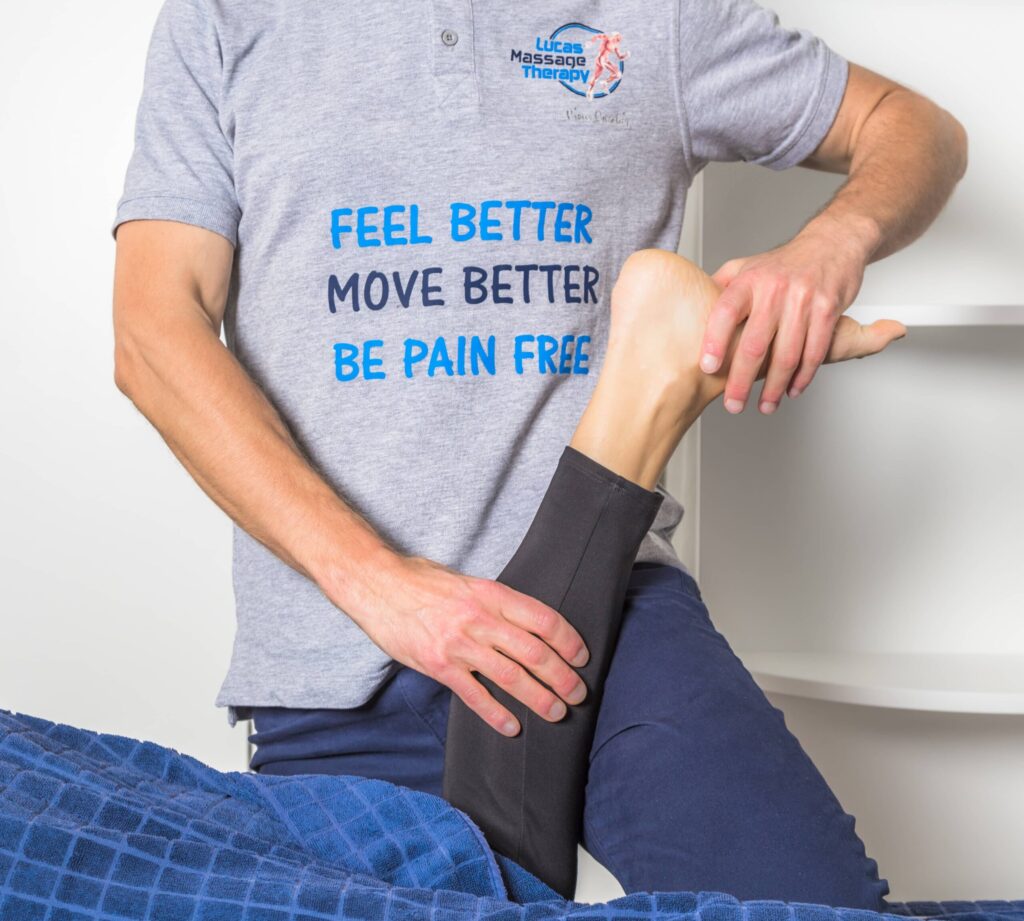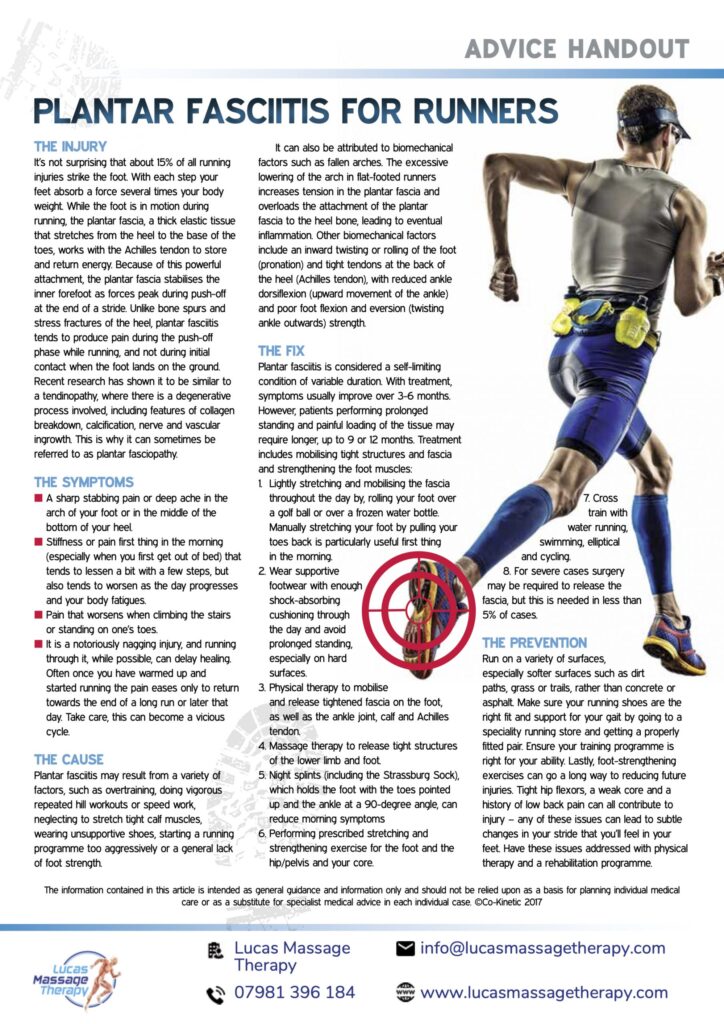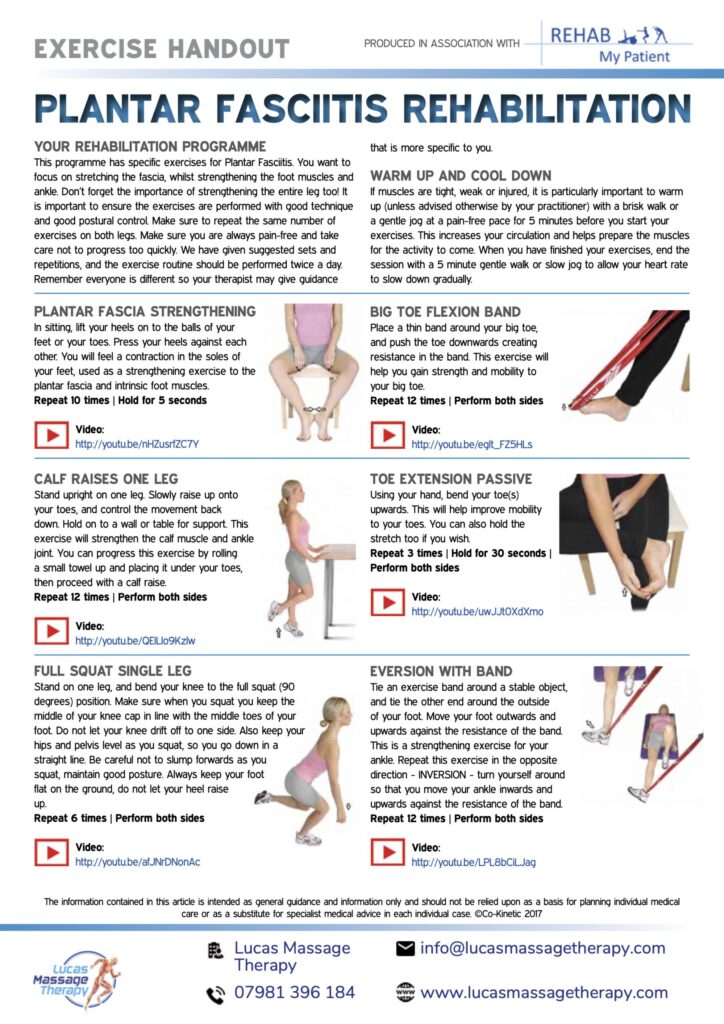Plantar fasciitis is an overuse condition. It affects the plantar fascia in insertion on the calcaneus. The plantar fascia is a tough sheet of fibrous. It runs from the tuberosity of the calcaneus to the metatarsal heads. The main role is to support the longitudinal arch of the foot for cushioning the bones of the foot and as a point of muscle attachment.
Repetitive ankle movement, often if it is restricted by tight calf muscles. It could irritate the plantar fascia at the calcaneus. There is often pain in the heel when rising from an extended rest. Running and walking on hard surfaces with tight calf muscles there is more chance of this injury. Fallen and high arches or improper footwear could cause plantar fasciitis.
Plantar Fasciitis causes
Ill-fitting or improper footwear. Running on a hard surface. Arch problems. Training errors. Overuse. Over-pronation. Limited range of movement of the calf muscles gastrocnemius, soles, plantaris and an Achilles tendon.
Plantar Fasciitis symptoms
Pain under the heel. It gets worse after the exercise or when rising from an extended rest. Pain can decrease during exercise but return after the activity is stopped.
Complications if left unattended
If not treated it could result in chronic pain that might cause a change in running or walking gait. The hip, knee and back might be affected too.
Plantar Fasciitis treatment
Anti-inflammatory diet and medication. Proper rest. Ice. Ultrasound. Sports massage is very beneficial for plantar fasciitis to promote healing and blood circulation.
Plantar Fasciitis rehabilitation and prevention
Stretching the plantar fascia and Achilles tendon can help with recovery time and prevent re-injury. An insert for the shoe might be needed at the beginning of the return to any sports activity. The muscles of the lower leg will benefit from strengthening to protect the fascia and prevent this condition.
Long-term prognosis
Most people with plantar fasciitis recover well after a number of weeks or sometimes months of proper treatment. Corticosteroid injections might be necessary in some cases where the fascia does not respond to early treatment.

Plantar Fasciitis Treatment – Sports Massage Watford
What Muscles Are Included When Massaging for Plantar Fasciitis?
The muscles at the back of your legs are connected through layers of fascia and tendons down to the Achilles tendon and plantar fascia. Tight muscles higher up in your body could put more strain on the plantar fascia. It is important to massage the plantar fascia and areas close to it and all the other muscles in the back of your legs, too.
Sports massage or deep tissue massage, is particularly helpful in loosening the tendons, ligaments and fascia of the foot. Plantar Fasciitis massage is focused on the foot, tendon and calf muscles like gastrocnemius, soleus and plantaris muscles located in the lower half of the leg. A massage involves various techniques aimed to reduce pain and improve recovery. Sports massage aims to relieve muscle tightness and improve blood flow. It will help with full recovery, and help a person return to exercise soon. Our sports massage therapist at Lucas Massage Therapy uses calf massage to help reduce pain, tension and tightness of the muscles.
Massage is beneficial for plantar fasciitis. By reducing muscle tension in the lower leg and by extending and softening the collagen fibres massage assists in the condition healing in addition to reducing the discomfort of plantar fasciitis.
The plantar fascia extends along the bottom of the foot between the calcaneus (heel) and the distal ends of the metatarsals. Plantar fasciitis is a painful state of the fascia which could result when it is stressed or overused. Upon getting out of bed in the morning or after the foot has been immobile and the sole is tender anterior to the calcaneus, people feel more distress.
It’s necessary for supporting the arch of the foot and for cushioning the foot’s bones. Ankle movement when confined by calves, can irritate the fascia. Pain is felt especially. Running or walking, with tight calf muscles, especially on hard surfaces, makes an athlete more susceptible to this injury. Arches and footwear that are wrong may lead to plantar fasciitis.

What Are The Benefits of a Plantar Fasciitis Massage in Watford?
- IMPROVE CIRCULATION
- STRESS-RELIEVING
- PROMOTES MUSCLE RELAXATION
- REMOVAL OF LACTIC ACID FROM TISSUE
- PAIN RELIEF
Lucas Massage Therapy put together a newsletter looking at the topic more broadly. If you’d like to download a copy, you can do so at the following link.

Plantar Fasciitis Exercises


